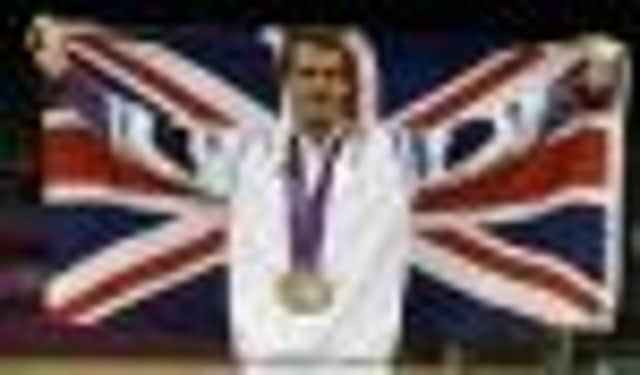Allan Massie: Murray’s thrilling demolition of Federer cements tennis as worthy Games spectacle


This is very evidently so in most cases. The Olympics come round once every four years and taking part and winning represent the peak achievement possible. Not so with tennis. Wimbledon, Roland Garros and the American and Australian Opens are more important.
Nevertheless, watching this year’s Olympic tennis, this reasonable argument seemed irrelevant – and not only in the light of Andy Murray’s marvellous demolition of Roger Federer. No doubt tennis appeared properly to belong partly because the tournament was played at Wimbledon. But there was another reason. Though the play was rightly and fiercely competitive, it seemed that all the players had entered fully into the Olympic spirit; there was an unusual happiness about the tournament, as if those taking part were simply delighted to be members of a team, to be part of something so much bigger than themselves. All sports at the top level are selfish, especially those which pitch one individual against another, and this is surely the case with tennis’s slam tournaments. But the Olympic tennis felt different.
Advertisement
Hide AdAdvertisement
Hide AdAs for Murray, what more can be said? In one sense he may never have played better. To beat first Novak Djokovic and then Roger Federer is remarkable. To do so without dropping serve once is extraordinary. Only once before has Federer lost a five-set match in straight sets – and that was to Rafa Nadal in Paris. Yet the odd thing was that one has seen Murray serve better. In both matches his first serve percentage was lower than it sometimes is. On the other hand, his second serve, which used to be a weakness, proved very effective.


He should have silenced the doubters who argued that he couldn’t win the really big matches. Admittedly some of his critics are still at it. A few even suggested that Federer wasn’t really trying. This is not only absurd; those who make this suggestion don’t seem to realise that they are insulting their hero. In any case, nobody plays a 36-game set in a semi-final of a tournament he isn’t determined to win. The fact is, that on the day, Murray completely outplayed him.
Happiness has been the theme of these Games, and not only because Team GB has done so remarkably well. Our cyclists, rowers and equestrians have been extraordinary. Mo Farah’s 10,000 metres and Jessica Ennis’s heptathlon will stay long in the memory. Success has been all the more pleasing after the hiccups of the first couple of days.
Medals have been won in such abundance that nobody, it seems, has mentioned Tom Daley for days. This may, one hopes, relieve some of the pressure on the boy, so that he gets on the podium in his individual event today.
Think how heavy a weight there would have been on his young shoulders if our medal tally had been miserable.
Then there has been Usain Bolt. Of course there has been Usain Bolt. The best comment on him was made by the great Michael Johnson. Asked by John Inverdale whether Bolt intimidated his rivals, Johnson said: “Not at all – they don’t pay any attention to him because they know he’s going to win” – or words to that effect. Nice to find Michael Johnson in agreement with my six year-old grand-daughter, Florence. “Of course he won,” she said, after the 100 metres, “he’s the fastest man in the world.” Quite so.
Few interviews have been memorable. How could they be? What can you intelligently say when asked how you feel about winning an Olympic Gold? “Unbelievable” has been the usual response, and I dare say in some cases even the winners do indeed find it hard to believe that years of work and effort have been so marvellously rewarded. Not Usain Bolt, however. The only thing, one supposes, that he would find unbelievable, would be a mere silver.
It was a pity that Bolt’s 200 metres final was staged on the same evening as David Rudisha’s 800, and little more than an hour after it, because, though these may be Bolt’s Olympics, Rudisha’s was the more remarkable performance. The Kenyan (Masai) athlete, trained by an Irish priest, Father Colm O’Connell, led from the start, ran with a beauty and grace seldom seen, and won in a canter, breaking his own world record. It was one of the finest things you could ever hope to see. Then to cap it all, Rudisha gave one of the most charming interviews of these Games.
Advertisement
Hide AdAdvertisement
Hide AdIt was matched by the one given by the Brownlee brothers from Yorkshire after their Triathlon triumph. They were delightful, modest, and amusing, such a nice change, hardened journalists have said, from “our overpaid, conceited Premier League footballers.”
Yes, indeed; but to be fair to the footballers they have to answer pointless questions week-in week-out and have learned to mutter empty jargon, whereas it was all fresh to the Brownlee boys, who haven’t yet learned management-speak. Let’s hope they never do.